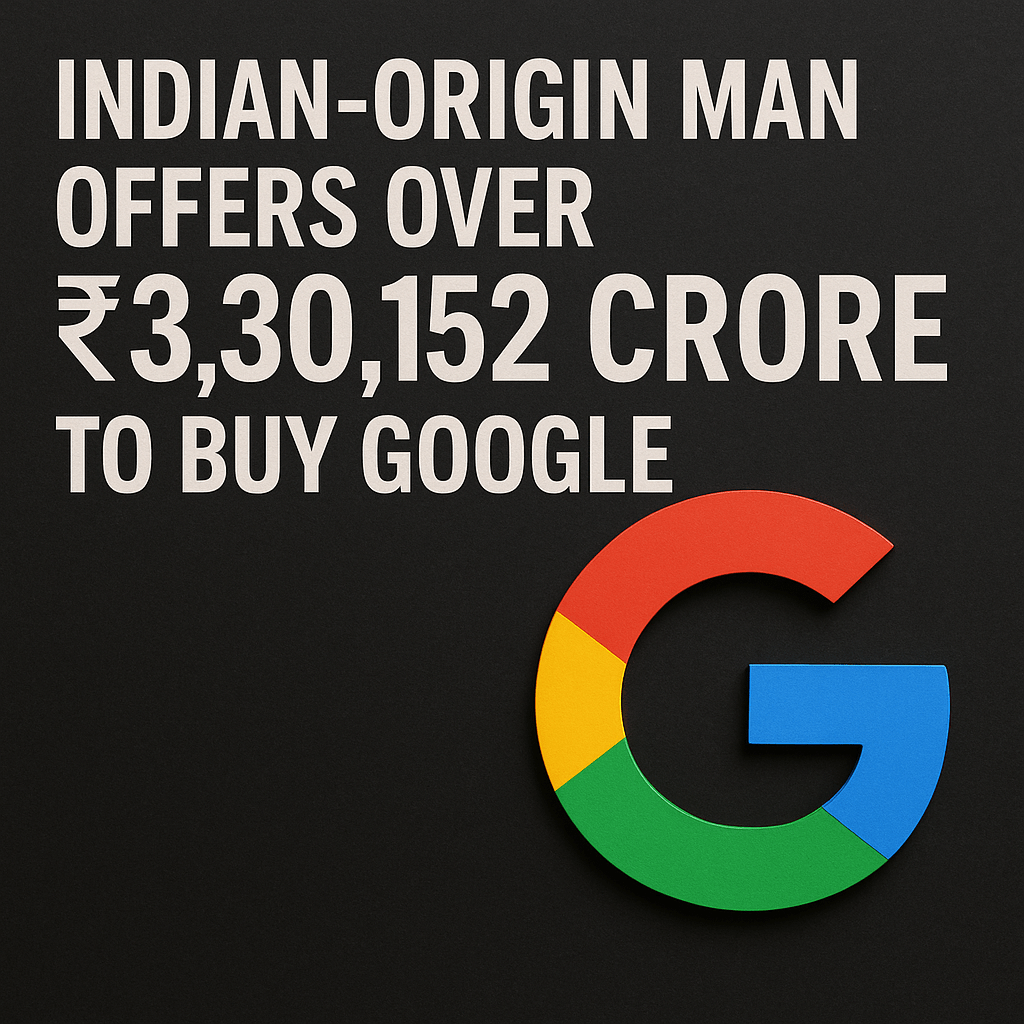|
Getting your Trinity Audio player ready... |
The Perplexity AI Chrome bid has become the talk of the tech world an audacious move that combines ambition, strategy, and high-stakes drama. In a surprising twist, Perplexity AI, led by Aravind Srinivas an Indian-origin CEO and former Google employee has placed an unsolicited $34.5B tech deal on the table to buy Google Chrome outright.
This is not just another Google Chrome acquisition rumor. This is a bold, fully cash-backed proposal that could disrupt the global AI browser competition and even force the industry to rethink how billions of people search the web.
Inside the Billion-Dollar Gamble
According to a Reuters report, Perplexity AI just three years old has shocked the market with a Perplexity AI Chrome bid worth over ₹3 trillion in Indian currency. This staggering offer surpasses Perplexity’s own $14 billion valuation. Yet Srinivas, backed by investors like Nvidia and SoftBank, appears undeterred. The startup has reportedly secured interest from multiple funds willing to finance the Google Chrome acquisition, though no names have been revealed.

The timing is as daring as the bid itself. Google is already under intense scrutiny due to a Google antitrust case led by the U.S. Department of Justice. Regulators are exploring remedies to address alleged monopoly practices, and one possibility is forcing Google to sell Chrome. Srinivas seems ready to pounce before the legal dust even settles.
The proposal isn’t just about buying a browser; it’s a vision for transformation. Perplexity’s plan includes:
- Keeping Chrome’s underlying Chromium code open-source.
- Over the following two years, $3 billion will be invested in the browser.
- preserving Chrome’s built-in search parameters to safeguard user preference.
For Srinivas, this move isn’t just business it’s a declaration that AI browser competition should be open, fair, and user-centric.
Also Read this – Google Gemini AI Update: A Powerful Leap Forward Challenging OpenAI’s GPT-5
Why This Could Rewrite the Browser Wars
The Perplexity AI Chrome bid could be a game-changer. Chrome commands over 3 billion users worldwide. If Perplexity gains control, it instantly secures a massive platform to challenge search giants. This is crucial in a world where AI-powered answers are replacing traditional search results.
With its conversational AI search engine that provides referenced, real-time answers, Perplexity has already created a stir. The business released its own AI-powered browser, Comet, earlier this year. Perplexity might become a strong competitor to OpenAI, Microsoft, and even Google itself if Comet’s innovation and Chrome’s reach are combined to tip the scales in the AI browser market.
Rivals are keeping a close eye on you. According to reports, Chrome has also piqued the interest of OpenAI, Yahoo, and Apollo Global Management. According to the CEO of DuckDuckGo, the browser’s forced sale might fetch over $50 billion, which is far more than Perplexity’s present offer.
Srinivas Aravind Another twist is added by the Google relationship. The IIT Madras graduate, who was born in Chennai, used to work at Google and even had training from Yoshua Bengio, a pioneer in deep learning. His insider understanding of Google’s ecosystem gives him a unique advantage in this high-stakes game.
Under his leadership, Perplexity has expanded globally, including a partnership with Bharti Airtel in May 2025 that gave 360 million Indian users free access to Perplexity Pro. This demonstrates that Srinivas knows how to scale and fast.
Legal Fights and Industry Shockwaves
Despite the excitement, experts doubt Google will give up Chrome easily. The browser is central to its AI strategy, including the rollout of “Overview,” a feature that delivers AI-generated summaries directly in search results. Selling Chrome could mean losing a key delivery system for these features.
If Google rejects the Perplexity AI Chrome bid, the legal and competitive battle could last years. Analysts warn that a Google antitrust case might wind its way through the courts, possibly reaching the U.S. Supreme Court. In the meantime, Perplexity’s aggressive approach has already shaken up the industry, forcing everyone from investors to engineers to consider a future where Google no longer dominates the browser market.
For users, the implications are huge. An open-source Chrome backed by a $3 billion investment could spark fresh innovation, improve privacy, and bring real competition back to web browsing. On the flip side, integrating AI deeply into browsing could raise fresh concerns about data usage, algorithm bias, and corporate control.







